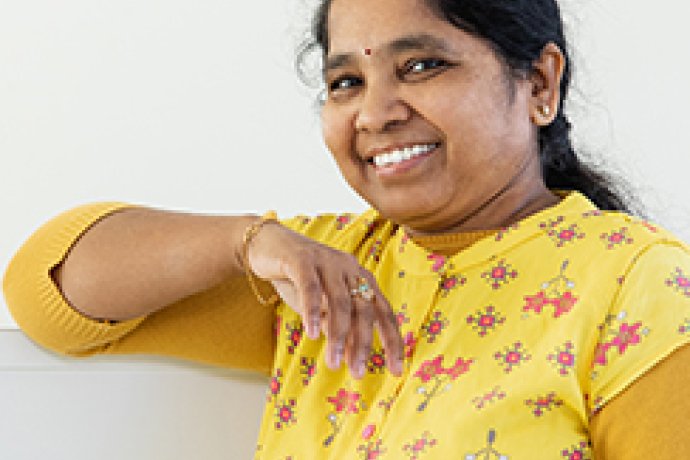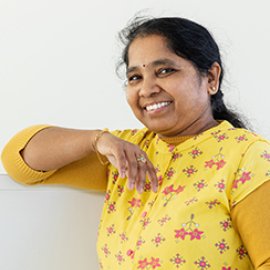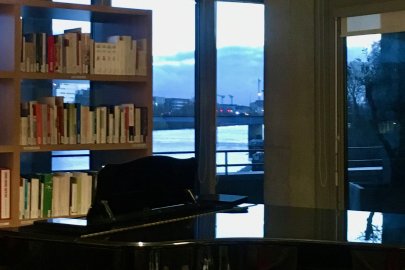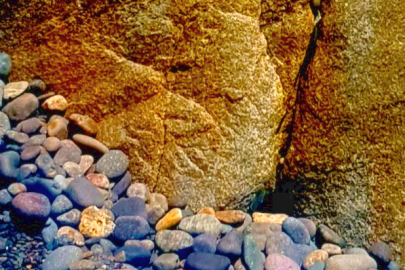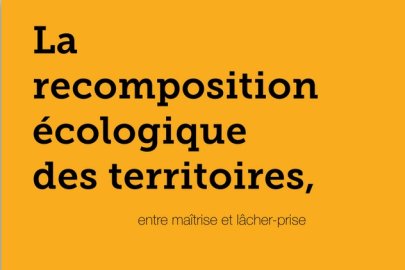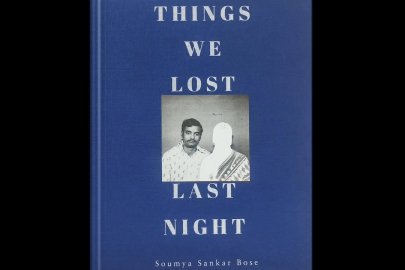Imagining the Institut d’études avancées de Nantes in 15 years!
Gogu Shymala
When I got an email from Anthony Clavier from Institut d’études avancées de Nantes to write a paper on 15-year-celebrations, I was delighted to connect again with thoughts and feelings to share in the form of a paper. I have a clear idea, that the Institute has a beautiful vision.
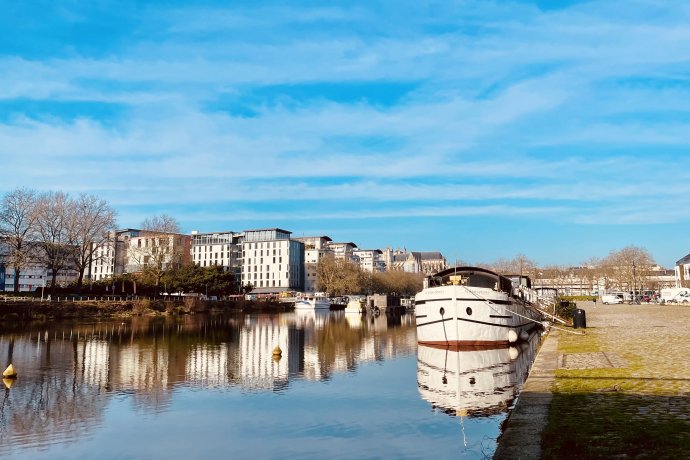
L’Institut d’études avancées de Nantes was special because of its vision and inclusiveness. I was a resident fellow in 2020-2021. So, I am proud to be an Indian Dalit woman writer and scholar as a fellow of the Institute. I am glad to say that the fellowship was special in my life, it had a good impact on my thinking and writing.
I think the Institute has a beautiful foundation of visionary scientific outlook and friendly people, I was able to be a resident fellow in the years 2020-2021 only because of its diverse and inclusive nature.
As an Indian Dalit woman writer and scholar, I am still very proud to be a former fellow of the Institut d’études avancées de Nantes.
In addition, I would like to say in this article that the Institute was established already with a strong-rooted ability and sustainability and vision. Therefore, a need to adopt, incorporate and update advanced studies, with changing current subjects, and inclusiveness for new generations. It can also be said that it is a case of modern necessity and multidisciplinary studies.
Imaginary, vision as well. What will the Institut d’études avancées de Nantes be like in 15 years!
In 15 years, the Institut d’études avancées de Nantes needs to evolve and update into a dynamic hub of interdisciplinary research, innovation, and collaboration, pushing the boundaries of knowledge and fostering creative solutions to global challenges. Here's a speculative glimpse into what the institute will be like:
Cutting-Edge Research Facilities: the Institut d’études avancées boasts state-of-the-art research facilities equipped with the latest technologies, enabling scholars from diverse fields to pursue pathbreaking research projects, for example, need to do digitalization and archive the palm-leaf manuscripts of Asian countries. Moreover, at present emerging technologies could encompass fields like artificial intelligence, quantum computing, biotechnology, and nanotechnology. Researching the latest advancements and their potential applications can be a crafted fertile ground for advanced studies. Advanced laboratories, high-performance computing centres, and collaborative workspaces provide an environment conducive to innovation and discovery.
Digital Transformation, the Institute embraces digital transformation, data analytics, and virtual reality to advance research, teaching, and outreach efforts. Digital platforms facilitate collaboration, knowledge sharing, and rural remote participation, enabling global engagement and accessibility.
Cultural Studies and Heritage Preservation: Understanding and preserving cultural heritage, languages, traditions, and artifacts are vital for maintaining diversity and fostering cultural exchange. Advanced studies in this area may encompass anthropology, archaeology, linguistics, history, and museum studies.
Interdisciplinary Research Programs: Interdisciplinary Studies Many of today's most pressing challenges require interdisciplinary approaches. The institute hosts interdisciplinary research programs that bring together experts from various fields, including science, technology, humanities, social sciences, seasonal studies, environmental studies and the theatre arts. And also focus on bridging multiple disciplines, such as bioinformatics (biology and computer science), cognitive neuroscience (psychology and neuroscience), or urban studies including agriculture irrigation waterbodies, rivers, lakes and ponds, shaping lives of people and their narrations with own language of them, around village ponds, canals and waterways.
And Astronomy, sociology, gender economics, history, literature, rural and agricultural studies, folk and theatre arts and urban planning, women studies. Specifically, Cultural Studies and Heritage Preservation is understanding and preserving cultural heritage, languages, traditions, and artifacts are vital for maintaining diversity and fostering cultural exchange. Advanced studies in this area may encompass anthropology, archaeology, linguistics, history, and museum studies.
And other important area is Anti-caste and anti-race studies. These programs tackle complex, multifaceted issues such as discrimination, humiliation, forms of violation of human rights, resilience, self-assertion. They also impact on power structure, institutions, and ecology, biodiversity, climate change. And artificial intelligence, health disparities, preservation forms of speculative theories, magic realism and culture, and shows of art forms of the margins. Research on mythology and knowledge of Indigenous people, specifically Tribe and Dalit women skill and organic knowledge in agriculture food grins production and medicinal knowledge of nature, cross-disciplinary, intersectionality’s and subaltern narrations. Identity politics and graded inequalities collaborate and bring a bridge between cultures nations and generations through generating novel insights.
Innovation Ecosystem: The Institute catalyses innovation and entrepreneurship, fostering collaborations between academia, industry, government, and civil society. Incubators, accelerators, and technology transfer; offices support the translation of research discoveries into real-world applications, driving economic growth and societal impact, and sustainability and environmental Sciences, research protection of nature biodiversity in the tradition forms by tribes and Dalits. With increasing concerns about climate change and resource depletion, studying topics such as renewable energy, sustainable development, conservation biology, and environmental policy can be both intellectually stimulating and socially impactful.
Sustainability and Resilience: the Institut d’études avancées is committed to sustainability and resilience, incorporating principles of environmental stewardship, social equity, and economic viability into its operations and research initiatives. The institute implements green building practices, promotes sustainable transportation options, and integrates resilience planning into its strategic priorities.
Social Justice and Human Rights, exploring issues related to social justice, equality, diversity, and human rights can involve fields like sociology, political science, anthropology, law, and ethics. This area of study can contribute to creating more equitable societies.
Global Health and Public Policy: Investigating health disparities, healthcare delivery systems, infectious disease control, and healthcare policy can be crucial for addressing public health challenges on a global scale. at the same time needs to preserve and protect traditional medicine and its historical knowledge
Global Network of Scholars: IAS-Nantes has established a global network of scholars, attracting top talent from around the world to participate in its research programs, workshops, and conferences. shows of art farms and paintings. Visiting fellows, resident researchers, and international collaborators contribute diverse perspectives and expertise, enriching the intellectual environment of the institute.
Cultural Exchange and Diversity: The institute celebrates cultural diversity and promotes intercultural exchange through artist residencies, cultural festivals, and cross-cultural collaborations. By fostering dialogue and understanding across cultural boundaries, IAS-Nantes contributes to the enrichment of the local community and the global cultural landscape.
Ethical and Philosophical Inquiry: Delving into ethical dilemmas, philosophical questions, and moral reasoning can enrich understanding across disciplines and help address complex societal issues.
Creative Arts and Innovation: Exploring creativity, innovation, and artistic expression can involve disciplines such as fine arts, design, creative writing, music, theatre, and film studies. Advanced studies in these areas can foster innovation and cultural enrichment.
These studies can give scope to other ways of inhabiting life and the world. it can explore alternative perspectives, lifestyles, and approaches to existence beyond what may be considered conventional and mainstream specifically Cultural Immersion, makes respect traditions, and ways of life. This could involve living with local communities, learning their languages, and participating in their daily activities to gain a deeper understanding of their worldview.
Nature Connection: Embracing a closer relationship with the natural world by spending time in nature and cultivating, practising productive skills artisan and cultivating a sense of worship and respect for the environment, greenery and biodiversity.
Mindfulness and Contemplation: Adopting practices such as living theology, meditation, mindfulness, and contemplative prayer to cultivate inner peace, presence, and awareness. These practices can offer a different way of experiencing and engaging with the world, fostering fraternity and a deeper connection to oneself and others.
Sustainability and Minimalism: Choosing to live more simply and sustainably, with a focus on reducing consumption, minimizing waste, and prioritizing experiences over material possessions. This approach involves reevaluating one's relationship with consumer culture and finding fulfilment in alternative sources of Buddhist simple and honest lifestyle, meaning and happiness.
In part of Community Engagement, participating actively in local communities, volunteering, and building meaningful connections with others. This can involve grassroots activism, social justice work, or simply fostering a sense of belonging and mutual support within one's neighbourhood or social circles.
Overall, in 15 years, the Institute for Advanced Study in Nantes has evolved into a vibrant, interdisciplinary ecosystem that harnesses the power of knowledge and creativity to address the complex challenges of the 21st century, making meaningful contributions to the advancement of science, society, and culture.
